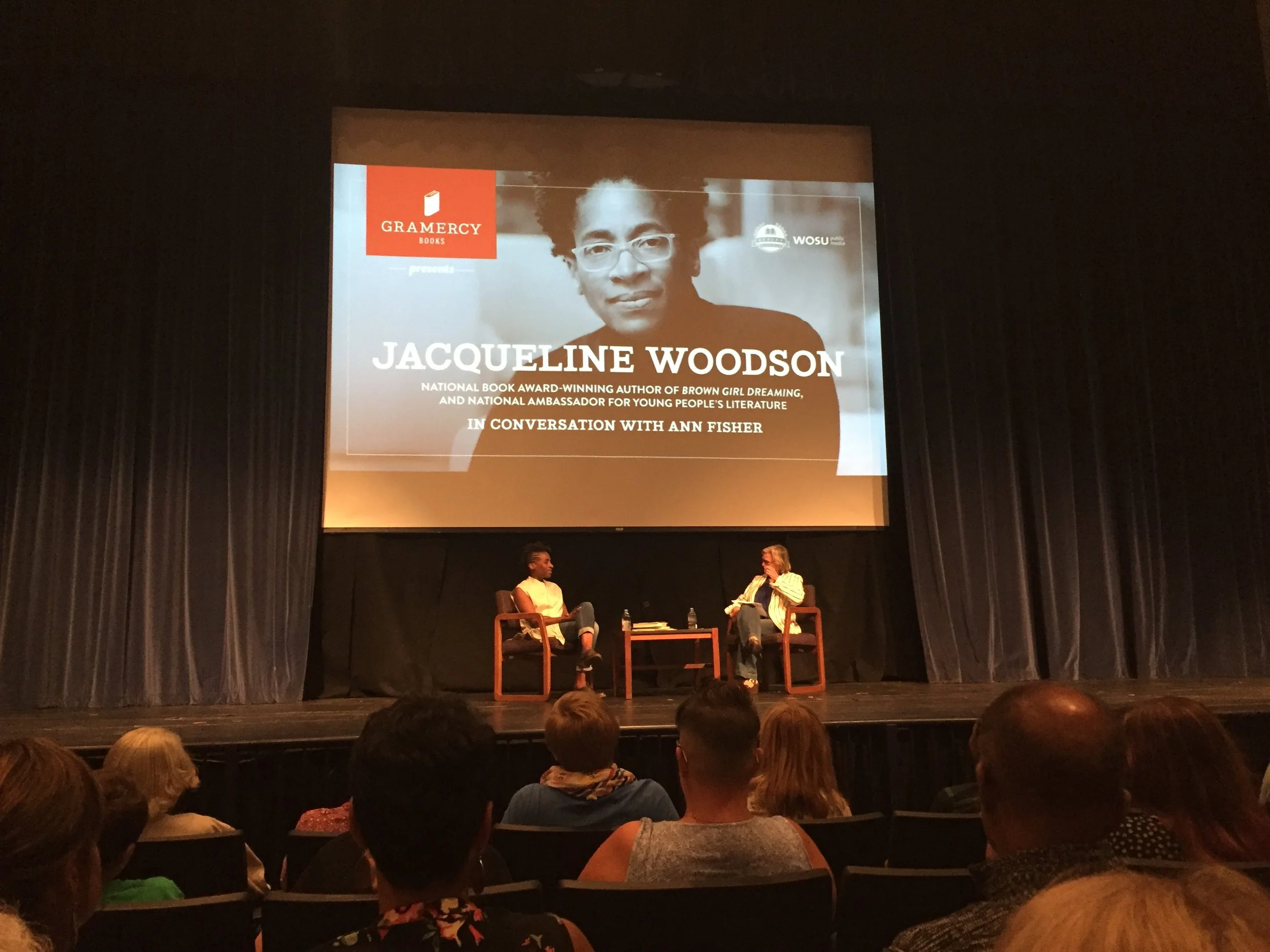An Evening with Brit Bennett, Author of The Mothers
Awhile back, I had the joy of seeing Brit Bennett, the author of The Mothers, when she came to town. It was a few months after The Mothers came out, Brit’s debut, and I was surprised at the small, intimate crowd. Once I’d started reading The Mothers, I couldn’t put it down. I was riveted. I could’ve been taped to my seat and I wouldn’t have noticed because I wasn’t getting up anytime soon.
It was one of those books I cancelled plans with friends for, so I’d have more time to read. Although I rarely re-read books, I’ve already read it twice.
Synopsis from Goodreads:
Set within a contemporary black community in Southern California, Brit Bennett's mesmerizing first novel is an emotionally perceptive story about community, love, and ambition. It begins with a secret.
"All good secrets have a taste before you tell them, and if we'd taken a moment to swish this one around our mouths, we might have noticed the sourness of an unripe secret, plucked too soon, stolen and passed around before its season."
It is the last season of high school life for Nadia Turner, a rebellious, grief-stricken, seventeen-year-old beauty. Mourning her own mother's recent suicide, she takes up with the local pastor's son. Luke Sheppard is twenty-one, a former football star whose injury has reduced him to waiting tables at a diner. They are young; it's not serious. But the pregnancy that results from this teen romance—and the subsequent cover-up—will have an impact that goes far beyond their youth. As Nadia hides her secret from everyone, including Aubrey, her God-fearing best friend, the years move quickly. Soon, Nadia, Luke, and Aubrey are full-fledged adults and still living in debt to the choices they made that one seaside summer, caught in a love triangle they must carefully maneuver, and dogged by the constant, nagging question: What if they had chosen differently? The possibilities of the road not taken are a relentless haunt.
I took a ton of notes during Brit Bennett’s talk and I’ve done my best to copy them as accurately as possible.
The reader Brit imagined enjoying The Mothers was a young black girl, which is important since the majority of books, even today, aren’t written with black readers in mind. She heard from one reader who reached out to her that it was the first book that woman read where black women had interior dialogue.
While working on the novel, Brit had an essay that went viral on Jezebel called “I Don’t Know What to Do With Good White People.” An agent was one of the people who read the essay and contacted her, wanting to represent her. The agent was actually looking for more writing like her viral essay but was pleasantly surprised when Brit gave her the manuscript that would become The Mothers.
The agent, like all good literary agents I’ve heard about, was very hands-on and edited the manuscript heavily before sending it to an editor. Good agents do this because they know what editors are looking for and want to give the book the best chance of being accepted for publication.
There are two ends of the spectrum: not wanting edits and being too open to edits. Brit recommends being open to suggestions but not letting people take your book in a direction you fundamentally don’t want it to go. Every time you change something in a book, it’s like walking into a hall of mirrors.
Without spoiling anything, the ending of The Mothers is pretty open-ended. That’s intentional because one of the themes of the novel is gossip and open-ended uncertainty is the nature of gossip. Sometimes you know what the person makes of themselves and sometimes you don’t.
Bennett is currently working to adapt the novel into a screenplay, which is proving challenging. Adapting a book for film is Hollywood asking you to fix all the perceived flaws of the book. And for books like The Mothers, where it’s mostly voice, trying to translate that visually is difficult. In a book you have a narrator who can tell you what people think but you don’t in film. Plus, film is meant to be consumed in one sitting but someone could, in theory, take a month or however long they want to read the book.
She’s also working on her second book which is set in a different time and place entirely. Bennett was hesitant to give details, though she hinted it would be historical fiction. Bennett worked on The Mothers for 7 or 8 years, so she’s finding it a little intimidating to be looking at a blank page. The possibility is fun but daunting; exciting and humbling.
While she worked on The Mothers, she’d go home every summer to San Diego and write. She was working on it even when she wasn’t working on it. She’d take a step back when revising and would write a whole new draft every summer.
The early draft of the novel was set right after the protagonist Nadia’s abortion but the timeline got spread out so you really see all the characters come of age. Bennett herself had to come of age before her characters could so she’d have more context and depth for writing them. The book changed a lot over the years.
She’s been heartened by how readers across the political spectrum have engaged with the book. She’s traveled all over the US and the world and has met kind fans. She’s encouraged by the level of empathy, compassion, and willingness people have to stretch their imagination when talking about the book. Readers have felt all kinds of different ways and connect to the three main characters for different reasons. Polarizing politics says people either feel one way or another, but normal people feel a whole spectrum of emotion and have a variety of perspectives as a result.
Bennett went on to say that all of her stories end up being the beginnings of novels. She did work on other things while The Mothers was coming into being; mostly writing short stories for grad school. She felt she was bad at short story writing (though her accolades beg to differ!).
Books and authors that inspire her are The Turner House by Angela Flournoy, Beloved and Song of Solomon by Toni Morrison, Bastard Out of Carolina by Dorothy Allison, and anything by James Baldwin and Ta-Nehisi Coates.






